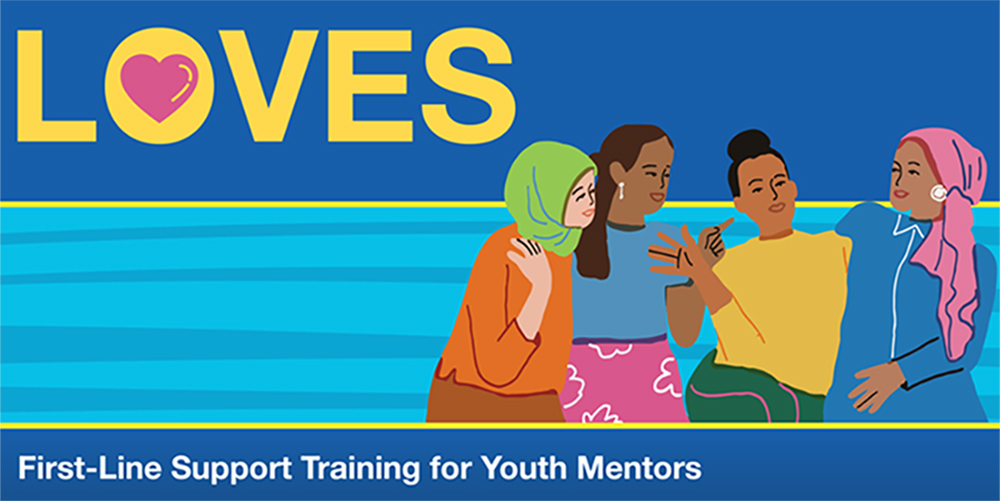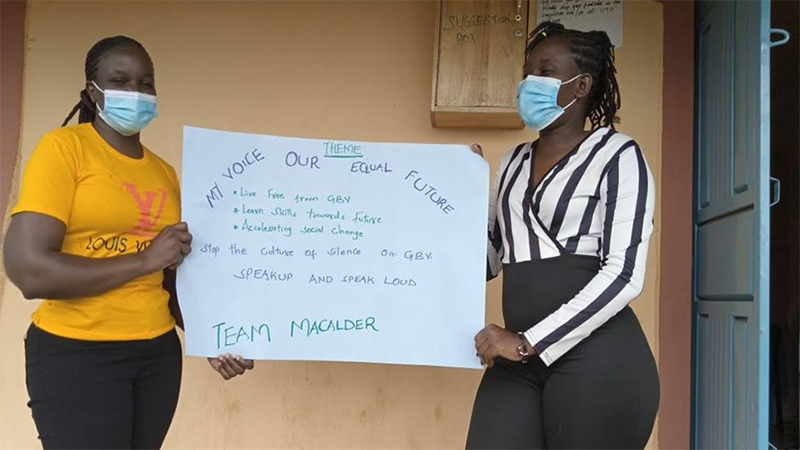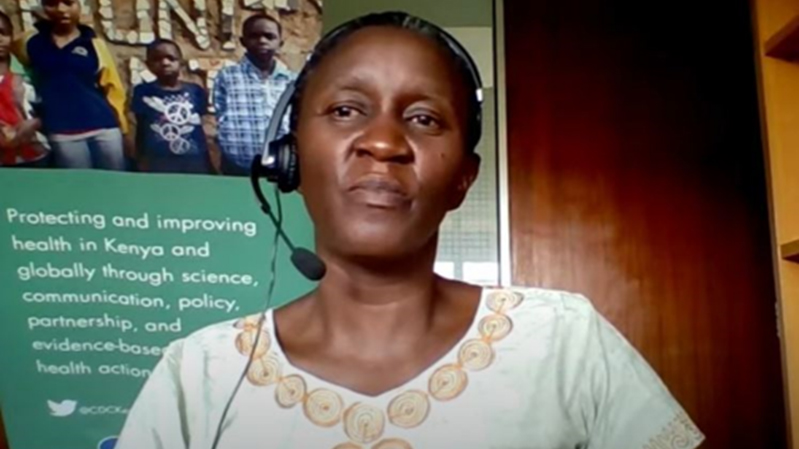LOVES Mentoring Makes a Difference
Summary
- Through CDC and PEPFAR support, individuals who have experienced violence are now receiving care from trained and skilled mentors – reducing their risk of HIV through post-violence care services.

In many programs implemented through the U.S. President’s Emergency Plan for AIDS Relief (PEPFAR), the Centers for Disease Control and Prevention (CDC) engages trained peer mentors to support the implementation of HIV prevention and response programming. DREAMS (Determined, Resilient, Empowered, AIDS-free, Mentored, and Safe), an HIV prevention program for adolescent girls and young women, uses mentors as trusted sources of information and confidants to participants. Mentors help participants build positive relationships within their support networks and promote active linkages to services.
Often, a close and ongoing relationship can develop, allowing participants to feel comfortable disclosing their fear of or experiences with violence to mentors. The importance of this unique relationship was emphasized during the COVID-19 pandemic, as violence increased, but access to services was interrupted. Throughout this time, mentors became first-line responders to violence in their communities. It also became critical for mentors to be adequately prepared to respond to disclosures of violence in affirming ways without stepping outside their roles as non-professional peers.
To meet the growing need, CDC’s implementing partners began training mentors to respond to program mentees through an adapted first-line support approach called LOVES (Listen, Ongoing connection, Validate, Encourage Safety, Support). Through LOVES, mentors gain hands-on skills to validate and support participants and connect them to appropriate services best suited to address the complexities of violence. From 2021-2022, CDC conducted four virtual LOVES training with 275 implementing partner staff in 15 countries. Each of these partners is now rolling out the same training with their respective mentors and other similar cadres.
LOVES in Action in Kenya
Results from Kenya’s 2019 Violence Against Children study indicate that 15.6 percent of young adult females (18-24 years old) have experienced sexual violence compared to just 6.4 percent of their male counterparts. Among young women who have experienced sexual violence, just 12.5 percent sought help after the incident. More than half of those who did not seek help stated that they did not think violence was a problem. In 2022, CDC partners in Kenya conducted LOVES training for 82 new facilitators to provide a compassionate response and increase connection to services. The facilitators then trained 1,116 mentors in DREAMS-supported programs. Throughout the training effort, in-person meetings were used to maximize interaction.

Adolescent girls and young women learn to use their voices to speak out against violence and gender inequality in Kenya. Photo by LVCT VUKISHA
Training DREAMS mentors to provide first-line support through the LOVES approach has allowed mentors to challenge norms and attitudes perpetuating violence. Following training, mentors can recognize harmful behaviors as unacceptable and connect survivors of violence to needed support services. These services include medicine to prevent HIV infection, often placing adolescent girls and young women at further risk of violence. The emphasis on the unique, ongoing connection of a peer relationship highlights how mentors are better placed to provide effective referrals, recognize signs and symptoms of violence, and create awareness of gender-based violence at the community level.

Caroline Kambona of CDC Kenya DREAMS.
“Gender-based violence remains a critical driver of HIV risk and is one of the criteria for enrollment into the DREAMS program,” said Caroline Kambona, of CDC Kenya DREAMS. “Fear of stigma associated with violence disclosure discourages adolescent girls and young women from reporting and seeking health services. Yet, it is easy for them to disclose violence to mentors as they develop appropriate solutions, helping to end the recurrence of violence. Scaling up the first-line response training in the DREAMS program has created a new opportunity to engage mentors as first-line responders to those in need and trigger community-level discussions to address violence.”
Keeping Mentors and Mentees Safe
As a skill-building intervention, LOVES improves the ability of mentors to respond to disclosures of violence in ways that aim to keep both adolescent girls and young women and mentors physically, emotionally, and psychologically safe. Emphasizing awareness of one’s strengths and limitations is a vital program component. This includes working with mentors to set boundaries around their role to increase safety for themselves and those they mentor. As violence disclosures have increased, mentees are quickly linked to care, allowing mentors to handle more cases without becoming overwhelmed.
However, mentors cannot do this alone. LOVES highlights the need for implementing partners to foster enabling environments while ensuring robust referral systems and services – including critical post-violence care services, sexual and reproductive health services, as well as non-clinical services and supports such as the justice system – are in place for anyone who may want help. While LOVES builds the capacity of mentors to respond to violence disclosures, it also recognizes that everyone has a part to play in ending violence.
Building Communities Free of Violence
Through CDC and PEPFAR support, those who have experienced violence are now receiving care from trained and skilled mentors – reducing their risk of HIV through post-violence care services. Mentors, adolescent girls, and young women are a part of, but not carrying sole responsibility for, changing social standards in their communities, and addressing the root causes of violence. Through increased PEPFAR support and commitment to expanding violence prevention programming, we can help eliminate gender-based violence and all forms of stigma and discrimination in our communities.